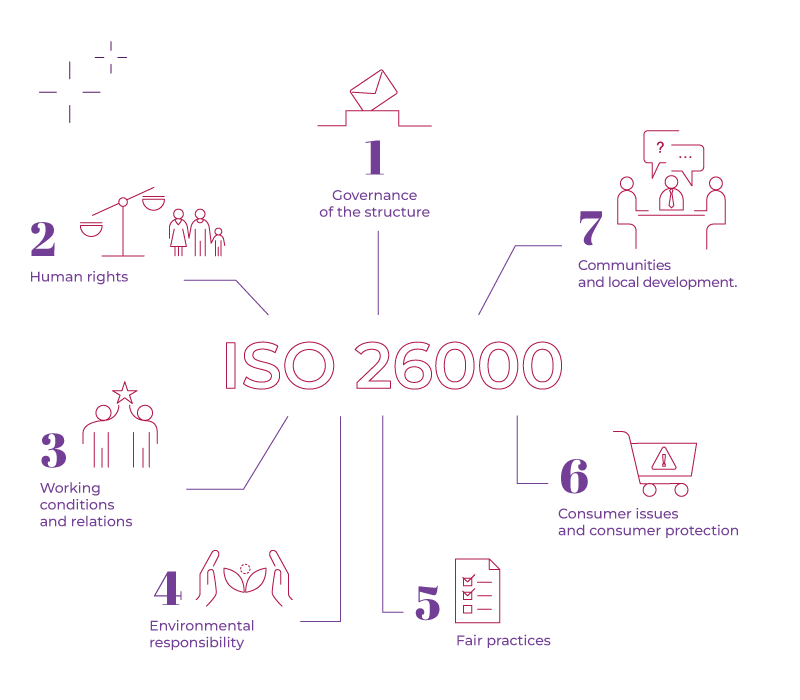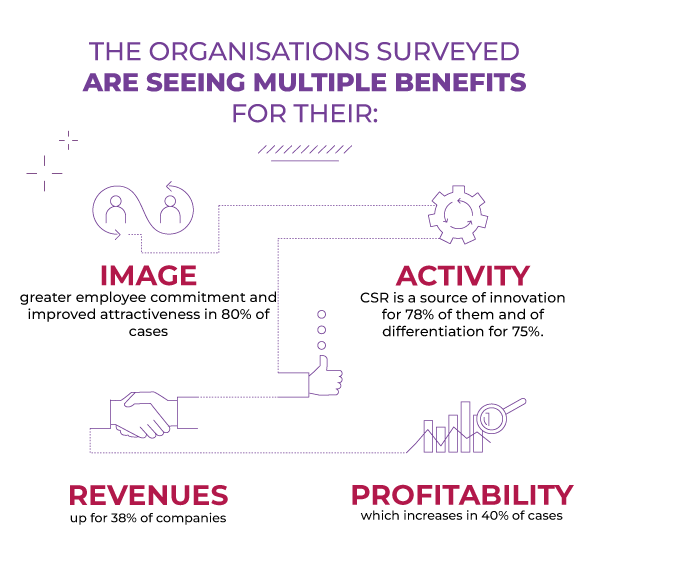
ISO 26000 provides an ultra-practical approach to sustainable development, enabling you to deploy a well-structured corporate CSR policy that leaves no stone unturned. Published in 2010, this voluntary standard was developed in consultation with nearly 90 countries around the world, including France.
It can be superimposed on the reading grid proposed by the UN’s Sustainable Development Goals (SDGs). In France, economic players are considering adding a voluntary standard to the European model of sustainable enterprise. You can get a foretaste by watching the replay of a conference organized on the subject by AFNOR in November 2022.
ISO 26000: a 7-entry reading grid
The voluntary ISO 26000 standard is structured around 7 central questions:
- Governance of the structure
- Human rights
- Working conditions and relations
- Environmental responsibility
- Fair practices
- Consumer issues and consumer protection
- Communities and local development.

ISO 26000 is non-binding and can be adapted to any type of organization wishing to embark on a sustainable development approach. Documents such as the extra-financial report highlight the company’s commitment to this responsible approach, and to a socially responsible economy.
AFNOR Editions’ Interactive Course enables you to quickly understand the NF EN ISO 26000 standard through digital content and concrete examples of its application.
ISO 26000: companies win over

The effects of a CSR approach are largely positive, according to the study conducted by the AFNOR group among over 400 companies at the end of 2019. The organizations surveyed observed multiple benefits:
- for their image (stronger employee commitment and greater attractiveness in 80% of cases);
- for their business (CSR is a source of innovation for 78% of them, and of differentiation for 75%);
- sales (up for 38% of companies);
- for their profitability (which increases in 40% of cases).
ISO 26000: involving the whole organization
To maximize the benefits, most companies appoint a CSR manager or a person in charge of sustainable development. It oversees the entire process and steers the deployment of actions. At every level of the organization chart, however, the company’s players have a role to play in bringing this corporate social responsibility approach to life.
ISO 26000 is also a good way of preventing and managing risks within a recognized framework. Transparent, responsible behavior that has a positive impact on an organization’s overall performance, whatever its size or sector of activity.
